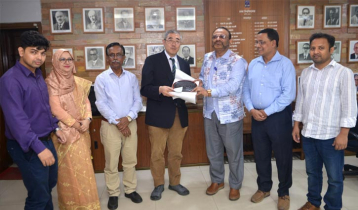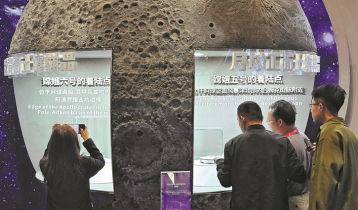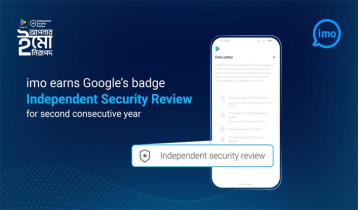Data Leadership is inevitable to mitigate data challenges in Bangladesh
Taslima Akter || risingbd.com

Bangladesh is a developing country that is experiencing a significant surge in the amount of data generated from various sources. With the widespread use of digital technologies, data has become an essential asset for public and private sectors to make informed decisions. However, the challenges of managing, analyzing, and utilizing this data have become increasingly complex. To overcome these challenges, the country needs strong data leadership that can harness the potential of data to implement national and international goals and policies like Sustainable Development Goals (SDGs), the 8th Five Year Plan, Global Indexes, the milestone Smart Bangladesh Vision 2041, etc.
Data collected through multiple sources (from mobile phones to smart home devices) are now analyzed to better understand users and target potential service users. These insights are then used to nudge or inform citizens’ choices, or design and deliver better public services that are more reliable, affordable, and easier to access. Mr. Md. Anowarul Arif Khan, Head of Data, Aspire to Innovate (a2i) stated, “In a time of such rapid change, enabling the right cultural, policy, legal, regulatory, institutional, organizational, and technical environment is necessary to control, manage, share, protect and extract value from data”.
Yet, the public sector often faces legacy challenges inherited from manual, paper-based models, ranging from outdated analog data infrastructures and data silos to skill gaps, regulatory barriers, the lack of leadership and accountability, and an organizational culture that is not prone to digital innovation and change. Four basic challenges have been found in Bangladesh those are-
a. Data Literacy: Unreported and improper data usage; Absence of Data Leadership
b. Data Access: Underutilized non-government data; Ignorance to non-conventional data
c. Data Sharing: Silo approaches; Old data mindset; Absence of data framework and
d. Data Storytelling: Inadequate analytics; and Less insight to policymakers.
Responding to these challenges requires developing a greater understanding and capacity concerning how Bangladesh addresses the need for more anticipatory and agile data governance. Thus, the a2i Programme, with the direct guidance of the Cabinet Division and ICT Division, initiated this ‘Data Leadership’ initiative as a core component of the Civil Service 2041 agenda to build public sector expertise on data, analytics, and data-driven decision-making among Bangladeshi civil servants. Launched in November 2021, this initiative aspires to foster a culture of evidence-based decision-making and innovations in public service delivery through various sensitization, awareness, training events, and problem-solution journey workshops.
Mr. Md. Ashraful Islam, Data Coordination Officer, a2i explained, “The Data Leadership journey has been implementing to empower civil servants to strengthen the institutional, regulatory, capacity, and technical foundations to harness the power of data to achieve the SDGs and Smart Bangladesh Vision 2041”.
From the beginning of its journey, the Data Leadership initiative has been playing a vital role in solving specific problems, such as improving educational services, enhancing agricultural productivity, supporting disaster management, etc.
In conclusion, Data Leadership is critical for mitigating data challenges in Bangladesh. The country needs to establish a data-driven culture that values the strategic use of data for social and economic development and the Data Leadership journey has been working to establish that culture that can improve its data governance, quality, and accessibility, and build a skilled workforce to manage and analyze data effectively. The benefits of the Data Leadership journey will be significant, leading to improved decision-making, enhanced public services, and a better quality of life for citizens.
The writer is a BSS (Hons.) and MSS in Mass Communication and Journalism from the University of Rajshahi. She can be reached through- [email protected].
Dhaka/AI























